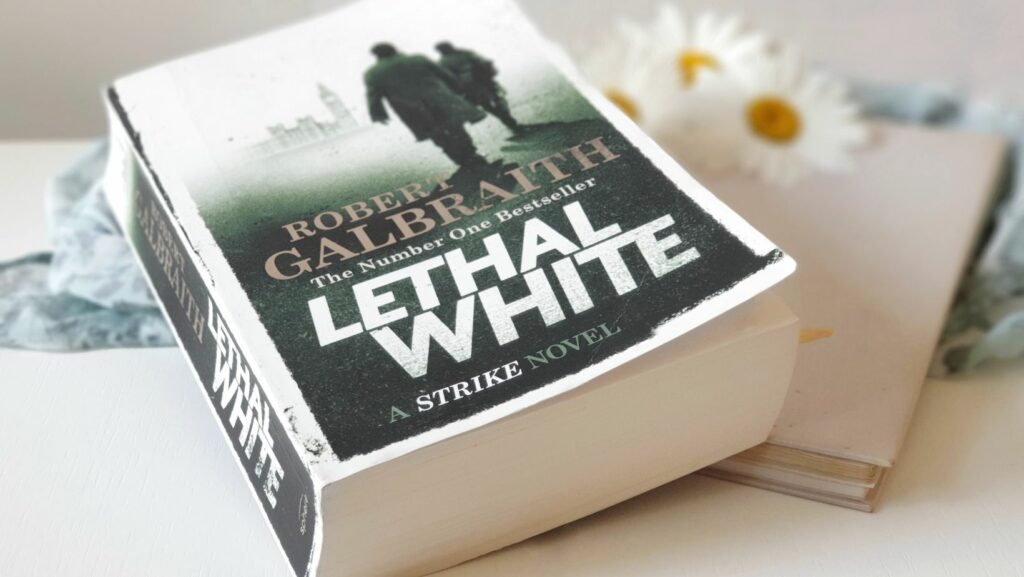Non Fiction Book Genres
- Diverse Genres: Non-fiction encompasses a wide range of genres, including biography, memoir, self-help, history, science, and more, each serving unique purposes and audiences.
- Personal Growth: Self-help and personal development genres focus on strategies for enhancing personal skills and well-being, providing actionable advice for readers.
- Cultural Insights: Travel writings deliver rich cultural insights and reflections on global experiences, enhancing readers’ appreciation for diverse customs and landscapes.
- Evolving Trends: Narrative non-fiction is on the rise, blending factual reporting with engaging storytelling, appealing to audiences looking for both information and entertainment.
- Accessibility of Content: Digital publishing has transformed non-fiction consumption, with e-books and audiobooks making knowledge more accessible to a wider audience across various platforms.
- Niche Exploration: Niche genres such as true crime and food writing offer in-depth exploration of specific interests, catering to readers eager for detailed insights into unique topics.
 Non-fiction books open a world of knowledge, offering insights into real events, people, and ideas. With a vast array of genres, each non-fiction category serves a unique purpose, catering to diverse interests and needs. From gripping memoirs that share personal journeys to informative self-help guides that inspire change, these genres enrich readers’ lives in countless ways.
Non-fiction books open a world of knowledge, offering insights into real events, people, and ideas. With a vast array of genres, each non-fiction category serves a unique purpose, catering to diverse interests and needs. From gripping memoirs that share personal journeys to informative self-help guides that inspire change, these genres enrich readers’ lives in countless ways.
Exploring non-fiction book genres reveals the many paths to understanding our world. Whether one seeks to uncover historical truths, learn new skills, or delve into scientific discoveries, there’s a genre that fits. This article will navigate the landscape of non-fiction, highlighting the key genres and what makes each one special.
Overview Of Non Fiction Book Genres
Non-fiction book genres encompass a wide spectrum of topics and formats, each serving distinct purposes and audiences. These genres facilitate learning and understanding through factual content rather than imaginative storytelling.
Key Non-Fiction Genres
- Biography and Autobiography: Chronicles of individuals’ lives, offering insights into their experiences, challenges, and accomplishments.
- Memoir: A subset of biography focusing on specific life events or periods, emphasizing personal reflections and emotions.
- Self-Help: Guides aimed at improving personal skills and well-being, offering practical advice on various aspects of life, such as relationships or productivity.
- History: In-depth explorations of past events, societies, and cultures, providing context and analysis based on documented evidence.
- Travel: Descriptions of journeys and experiences in different locations, often highlighting cultural insights, adventures, and local customs.
- Science and Nature: Works that explain scientific concepts or natural phenomena, aiming to educate readers on the complexities of the world around them.
- Cookbooks: Collections of recipes, cooking techniques, and culinary tips, catering to various skill levels and dietary preferences.
- Business and Economics: Analyses of market trends, financial strategies, and management theories, providing practical insights for professionals and entrepreneurs.
- True Crime: Account of real criminal events, exploring the psychology and circumstances surrounding criminal behavior.
- Essays: Compilations of personal reflections or arguments on various topics, often showcasing the author’s unique perspective.
- Philosophy: Texts that investigate fundamental questions about existence, knowledge, and ethics, encouraging critical thinking and introspection.
- Parenting and Family: Guides providing insights into raising children and maintaining family relationships, often based on research or personal anecdotes.
Each of these genres contributes to a deeper understanding of the world, offering readers valuable perspectives based on factual information.
Main Categories Of Non Fiction
Non-fiction encompasses a wide range of genres, each contributing distinct insights and information. Below are some of the primary categories.
Biography And Memoir
Biography and memoir both focus on real lives. Biography provides an account of someone’s life, offering a detailed narrative based on research and interviews. Memoir shares personal experiences and reflections, often highlighting specific themes or periods in a writer’s life. Both genres enhance understanding of individual experiences and historical contexts.
Self-Help And Personal Development
Self-help and personal development genres focus on strategies for personal growth and improvement. Self-help books provide actionable advice, techniques, and motivation for overcoming challenges. Personal development literature emphasizes self-awareness, goal-setting, and skill enhancement, enabling readers to cultivate healthier mindsets and achieve personal objectives.
History And Politics
History and politics genres explore past events and their implications. Historical non-fiction presents factual accounts of significant occurrences, people, and cultures to provide context for present circumstances. Political non-fiction analyzes systems, policies, and government behavior, offering insights into current societal issues and political dynamics, fostering informed civic engagement.
Science And Nature
Science and nature genres delve into the complexities of the natural world and various scientific principles. Science books explain theories, research, and discoveries, making complex topics accessible to a general audience. Nature writing often captures the beauty and intricacies of ecological systems and wildlife, promoting awareness and appreciation of the environment.
Niche Non Fiction Genres
Niche non-fiction genres cater to specialized interests, providing in-depth exploration of unique topics. These genres offer readers detailed insights into specific areas of life, culture, and human experience.
True Crime
True crime focuses on real criminal events and the psychology behind them. This genre includes detailed accounts of notorious crimes, investigations, and the lives of criminals. Authors often weave narratives that incorporate victim backgrounds, law enforcement challenges, and judicial outcomes. Notable works include “”In Cold Blood”” by Truman Capote and “”I’ll Be Gone in the Dark”” by Michelle McNamara. True crime appeals to readers seeking to understand the darker aspects of humanity and society.
Travel Writings
Travel writings encompass narratives that explore places, cultures, and personal experiences associated with travel. This genre captures the essence of adventure and discovery, often highlighting the author’s reflections on local customs, history, and geography. Examples include “”A Walk in the Woods”” by Bill Bryson and “”Eat, Pray, Love”” by Elizabeth Gilbert. Travel writings transport readers to distant locations, fostering a sense of wanderlust and appreciation for diverse cultures.
Cooking And Food Writing
Cooking and food writing revolve around culinary practices, recipes, and the cultural significance of food. This genre includes cookbooks, memoirs, and essays that celebrate gastronomy and its role in daily life. Authors often share personal stories related to food, cooking techniques, and the history behind various cuisines. Prominent examples include “”Salt, Fat, Acid, Heat”” by Samin Nosrat and “”The Joy of Cooking”” by Irma S. Rombauer. Cooking and food writing appeal to readers looking to enhance their culinary skills and discover new flavors and traditions.
Popular Trends In Non Fiction
New trends in non-fiction showcase evolving reader preferences and advancements in publishing. Understanding these trends provides insight into the dynamics of the non-fiction landscape.
The Rise Of Narrative Non Fiction
Narrative non-fiction combines factual reporting with storytelling techniques. This genre captivates audiences by presenting real events in a compelling narrative format. Significant works like “”In Cold Blood”” by Truman Capote illustrate how personal experiences and dramatic storytelling enhance factual content. Readers now seek narratives that engage emotionally and intellectually. As a result, this genre has gained prominence, appealing to those interested in both accurate information and immersive storytelling.
The Impact Of Digital Publishing
 Digital publishing revolutionizes the non-fiction space by increasing accessibility. E-books and audiobooks allow readers to consume content on various devices, facilitating on-the-go learning and exploration. Platforms like Kindle and Audible provide extensive selections, making niche non-fiction genres more available. Moreover, self-publishing enables authors to reach audiences directly, fostering diverse voices and topics that resonate with contemporary issues. This shift in publishing not only expands reader choices but also encourages the exploration of unique perspectives within non-fiction.
Digital publishing revolutionizes the non-fiction space by increasing accessibility. E-books and audiobooks allow readers to consume content on various devices, facilitating on-the-go learning and exploration. Platforms like Kindle and Audible provide extensive selections, making niche non-fiction genres more available. Moreover, self-publishing enables authors to reach audiences directly, fostering diverse voices and topics that resonate with contemporary issues. This shift in publishing not only expands reader choices but also encourages the exploration of unique perspectives within non-fiction.
Readers Can Find Value in Memoirs That Share Personal Journeys
Non-fiction book genres offer a rich tapestry of insights and knowledge that cater to a wide range of interests. From personal narratives to scientific explorations each genre opens doors to understanding the complexities of life and the world around us. Readers can find value in memoirs that share personal journeys or delve into the intricacies of history and science.
As the landscape of non-fiction continues to evolve with trends like narrative non-fiction and digital publishing the opportunities for discovery remain endless. Embracing these genres not only enriches one’s knowledge but also fosters a deeper connection to various subjects and perspectives. Whether seeking personal growth or a better understanding of global issues non-fiction books are invaluable resources.



